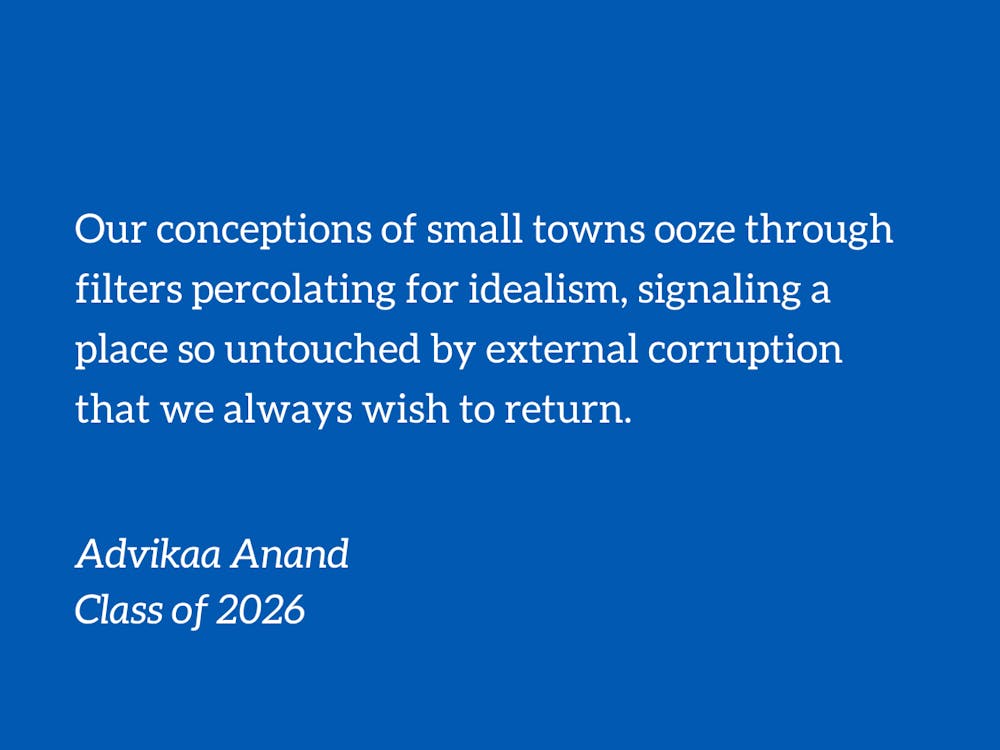After a long year of drudging through daily life’s mundane motions, it is finally the holiday season! As joy and merrymaking commence in dining and living rooms across the country, so too does Netflix’s lucrative commercial holiday film season.
Despite the great new film investments undertaken by the company each year, their movie plots are wholly lacking in any iota of originality. Each movie features a beautiful girl, disillusioned by the monotonous buzz of city life, venturing into the snowy setting of a small town, where she rediscovers the true holiday spirit of sharing and caring and falls in love with a local boy. Aside from a few gut-wrenching confrontations about issues that could easily be solved by proper communication (but which one of us wishes to embark on that treacherous pathway?), the two reunite in the end and live happily ever after!
While such movies play to the hopelessly romantic inclinations of audience members (admittedly, I am one of them), they also embody America’s perennial fascination with small towns, showcasing the prevailing national perception that such places are immune from the worldly issues plaguing overcrowded metropolises. These beliefs originate from the complimentary beliefs that “only in a small community . . . can we really know what we are doing [because] only at a particular scale can we see human relations in their fullness.” In cities, “meanings and connections are multiplied until we can’t see them at all. In the country or wilderness, we may feel that our actions take place outside the grid of human meaning entirely.” Thus, the “ideal polis” becomes the small town, assuming a “primary mythic role . . . play[ed] in our politics: the stage that is just the right side.”
Our conceptions of small towns ooze through filters percolating for idealism, signaling a place so untouched by external corruption that we always wish to return.
But the actual narrative about small towns is not so linear. As the coasts of America rapidly hurtle towards new milestones of economic progress, the manufacturing small towns in the middle have been left behind. Our endless addiction to growth as a society has led us to overlook those for whom the same kind of growth is not possible—those whose lifestyles are so hinged upon certain methods of economic production that adopting new ones are totally out of the question. As a result, small-town America continues to struggle with critical social and infrastructure problems. Their desperate calls for intervention went unheard, their languishing frustrations eventually culminating with the election of former president Donald Trump, who appeared as a sort of savior for the plethora of issues beleaguering these communities.
The median age in American small towns is 43, which has led to declining productivity, defined as average output per worker. Populations are shrinking, as small towns witness mass exodus to the cities. Many of these residents are escaping crime and widespread opioid abuse, once considered issues confined to urban areas. But the problems are not only so extreme. The more subtle consequences of a crumbling infrastructure also wreak substantial havoc, their ramifications spanning a wide range of subsectors, the chief of which is public health. Small towns have obesity rates soaring above the national average for all ages. The high incidence of health-related disparities is exacerbated by the lack of access to healthcare facilities.
Additionally, excessive reliance on cars for transportation excludes the transition to clean renewable energy as a feasible option, exacerbating the impact of these towns on the global climate change crisis. The increased demand for multifamily housing by those who cannot afford the traditional single-family home has been met with an oversupply of these same single-family homes.
Perhaps most pressingly, economic growth skirts small towns. After the 2008 recession, “counties with fewer than 100,000 people lost 17,500 businesses. By contrast, “counties with more than 1 million residents added, altogether, 99,000 firms.” This is because national economic distress puts unique duress on small-town economies, which often rely entirely upon a single manufacturing output. Small towns have become a casualty of an increasingly globalized economy. As corporations externalize production facilities abroad to pursue cheaper labor, “there are fewer than 13 million workers in manufacturing across the entire economy.”
Small towns are not the idyllic escape that popular holiday cinema makes them out to be. On the contrary, they are beset by pressing economic problems that will soon demand an absolute inversion of lifestyle for residents if the current course is not reversed.
However, if there’s one thing that small towns and their Hollywood recreators get right, it’s capturing the essence of community that characterizes these towns. Social psychology research has repeatedly illustrated that smaller communities are kinder and more empathetic than their urban counterparts. Replicated studies have produced the conclusion that strangers are far more likely to be helped in rural communities than in urban areas. Such findings can be attributed to the overabundance of stimulation in urban settings; perhaps, the relative quiet of rural areas enables residents to become more attuned to each other’s needs and cultivate empathy at a greater level.
Small towns deserve neither our absolute pity nor our abundant admiration. Their truth rests in the gray area of the black-and-white gradients into which we try to sort all that we encounter. Small towns are characterized instead by the same gray moral uncertainty that characterizes every other region of this country and by extension, the rest of us too.
Advikaa Anand is a Trinity freshman. Her columns typically run on alternate Thursdays.
Get The Chronicle straight to your inbox
Signup for our weekly newsletter. Cancel at any time.
Advikaa Anand is a Trinity sophomore and an opinion managing editor of The Chronicle's 119th volume.

